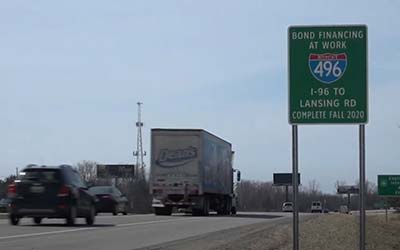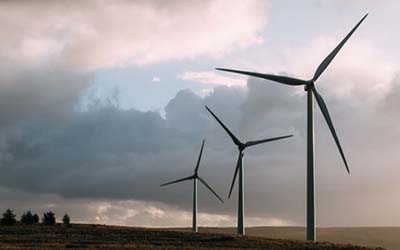
EGLE awards 27 grants for stream cleanups
|
|

|
|

|
Media Contact: Lynsey Mukomel FOR IMMEDIATE RELEASE: AG Nessel Reminds Michiganders to Vet Tax PreparersLANSING – Now that it’s tax season, Michigan Attorney General Dana Nessel is reminding Her latest video stresses the importance of vigilance when selecting a tax preparer. “After a year like 2020, it’s understandable more people will need assistance filing their taxes,” Nessel said. “That’s why it’s so important to make sure you can trust the person preparing them. There are bad actors out there waiting to take advantage of tax payers.” Michiganders need to remember:
This video is part of a series of informative and humorous videos focused on consumer protection. Additional resources are always available by visiting the Attorney General’s Consumer Protection webpage. ### |


FOR IMMEDIATE RELEASE
Video: Rebuilding Michigan Bond Funds in Action
LANSING, Mich. — With road and bridge projects getting underway across the state, a new Michigan Department of Transportation (MDOT) video highlights how Go
“This Rebuilding Michigan bond program is really going to impact and improve the quality of people’s lives across Michigan,” Gov. Whitmer said at a recent visit to the completed I-496 rebuilding project between I-96 and Lansing Road in Eaton and Ingham counties.
“I think the governor is right,” added State Transportation Director Paul C. Ajegba. “This year is going to be the most we’ve ever spent on infrastructure in the state of Michigan’s history.”
Thanks to the $3.5 billion raised through the sale of Rebuilding Michigan bonds, additional funding will be available over the next four years to rebuild critical roads and bridges in Michigan that otherwise would not have been addressed for years due to limited resources. In addition, projects originally scheduled by MDOT to resurface or otherwise repair roads and bridges will now be upgraded to be full rebuilding projects, lasting much longer and providing more value for taxpayer dollars. This bond funding will also free up funding to invest in other MDOT projects as well.
“These can actually be, rather than patch jobs and kind of papering over things, real road reconstruction,” said Lt. Gov. Garlin Gilchrist. “This is really a matter of public safety.”
Among the projects highlighted in the video: – I-69 in St. Clair, Genesee, Clinton, Eaton, and Calhoun counties, – I-75 in Monroe County, – I-496 in Ingham County, – I-94 in Jackson County, and – I-196 in Allegan County.
As the governor stated in her State of the State address in January 2020 announcing the Rebuilding Michigan program, “From now on, when you see orange barrels on a state road, slow down and know that it’s this administration fixing the damn roads.” |

FOR IMMEDIATE RELEASE THURSDAY, APRIL 22, 2021 CONTACT: Chelsea Wuth, MDHHS, 517-241-2112 MDHHS launches pilot Travel Points Testing at April 22, 2021 — In an attempt to mitigate the spread of COVID-19, the Michigan Department of Health and Human Services (MDHHS), in partnership with the Michigan Department of Transportation (MDOT) and select Michigan airports, are piloting a Travel Points Testing program this spring – bringing antigen COVID-19 testing to locations with high volumes of travel. Quick and cost-free testing will be offered at several Michigan Welcome Centers and airports throughout the state, with results available in as little as 15 minutes. Walk-ups are taken as space allows, and an option to register online via a mobile device will also be available. “As we head into the summer with vaccines ramping up and a light at the end of the tunnel, I am so proud of this partnership between MDOT and MDHHS to keep Michiganders safe,” said Gov. Gretchen Whitmer. “I encourage all Michiganders to continue masking up, socially distancing and hand washing to slow the spread, and if you re-enter or travel across the state, get tested at one of the new sites being set up at key points. Finally, I encourage you to get vaccinated, which is the most effective way to keep you and your family safe and put this pandemic behind us.” “We are excited to provide space at our select Welcome Centers for immediate COVID-19 testing,” said State Transportation Director Paul C. Ajegba. “Our Welcome Centers are a gateway to thousands of travelers coming into the state each day, making them ideal locations to help prevent the spread of this horrible virus. Just look out for the COVID testing signs before the appropriate centers along the freeways.” Insurance is not required, and results can be obtained via text, e-mail or uploaded to the traveler’s patient portal. “We are pleased to partner with MDOT and offer simple, quick COVID-19 testing for Michiganders and travelers to Michigan,” said Dr. Joneigh Khaldun, chief medical executive and chief deputy for health at the MDHHS. “With growing concerns of new, more contagious variants, testing for COVID-19 is more important than ever. If you are engaging in any travel, we encourage you to take advantage of this testing when you re-enter or travel across the state.” Testing trailers will be located on the grounds of Michigan Welcome Centers. Testing stations will be located at multiple locations inside Michigan airports. Welcome Centers (open daily Monday-Sunday 10 a.m. to 5 p.m.):
Airport:
“Testing sites are widely available at MDOT Welcome Centers and airports for the convenience of the traveler, and we have created resources for travelers to journey safely. To learn more about the Pure Michigan Pledge and to view resources, visit our state travel office website,” said Larisa Draves, executive director, Michigan Association of Convention and Visitor Bureaus. Additional sites will be announced as they are confirmed. To learn more about coronavirus and related resources in Michigan, visit Michigan.gov/Coronavirus. To learn more about the Centers for Disease Control and Prevention’s guidance on travel and additional safety measures, visit CDC.gov. |


FOR IMMEDIATE RELEASE
April, 22, 2020 Governor Whitmer Celebrates Earth Day By Announcing State of Michigan Offices Will Procure 100% Renewable Energy by 2025 LANSING, Mich. –On Earth Day Governor Gretchen Whitmer announced that state-owned facilities would utilize 100% renewable energy by 2025. This goal is made possible through partnerships with three major utilities, DTE, Consumers Energy, and Lansing Board of Water and Light. The energy purchased will expand the utility’s renewable portfolio in Michigan, rather than simply rerouting existing renewable energy that is already being generated.
“Since my first day in office, we’ve continued to make real, lasting progress on environmental and climate issues across our state,” said Governor Whitmer. “By moving state-owned buildings to 100 percent clean, renewable energ
In addition to moving towards 100% renewable energy for state-owned buildings, the state is also launching an interagency team across state government departments to identify our potential solar footprint and develop and implement a plan to deploy solar across our state-owned lands and properties.
“DTE Energy is proud to play a leading role in helping the state of Michigan achieve its sustainability aspirations through enrollment in DTE’s CleanVision: MIGreenPowe
“The Lansing Board of Water & Light has a long history of helping government, residential and business customers to achieve their renewable and clean energy goals, and we’re proud to be partners with the State of Michigan for this project,” said BWL General Manager Dick Peffley. “The BWL is working to become the Utility of the Future, because now more than ever, we have to do our part to keep our community cleaner and greener.”
“Like Gov. Whitmer, we at Consumers Energy are bullish on the role clean energy plays in helping Michiganders save energy and money – and there’s no better customer to showcase that value than the state of Michigan itself,” said Garrick Rochow, President and CEO of Consumers Energy. “Consumers Energy is committed to doing good for our customers and the planet. Our new partnership with the state builds on our Clean Energy Plan as we eliminate coal, dramatically increase renewable energy and achieve net zero carbon emissions.”
“This action shifts the State of Michigan from being a major consumer of electricity to a major driver of our clean energy economy,” said John A. Kinch, PhD, Executive Director of Michigan Energy Options, a nonprofit solar development consultant to the State. “By doing this, the State accomplishes three things at once: It puts the State on course to meet its carbon goals, in part, through solar generation, it helps the utilities meet their renewable energy commitments and it serves the people of Michigan by catalyzing our public and private sectors to decarbonize our future.”
“This is a very exciting proposal for Michigan’s environment,” said Conan Smith, President & CEO of the Michigan Environmental Council. “Through a partnership with our utilities, the governor is honoring her bold commitment to achieve carbon neutrality by 2050, and she’s using the buying power of state government to directly expand renewable energy generation right here in Michigan. This is the kind of power move we like to see!”
Both initiatives align with Executive Directive 2020-10, which formally sets economic decarbonization in Michigan by 2050. To ensure steady progress toward this goal and prevent irreparable harm to Michigan’s ecosystem, residents, and businesses in the interim, the Executive Directive further provides that Michigan will aim to achieve a 28 percent reduction below 1990 levels in greenhouse gas emissions by 2025. Transitioning to carbon neutrality will mitigate the future harms of climate change and enable Michigan to take full advantage of the ongoing global energy transformation—from the jobs it will generate for our skilled workforce to the protections it will provide for natural resources, to the savings it will bring to communities and utility customers. |